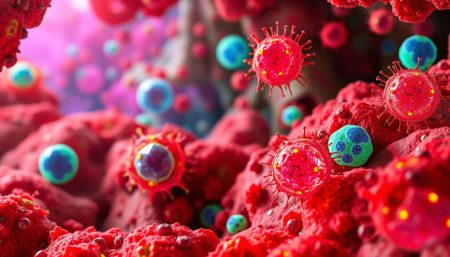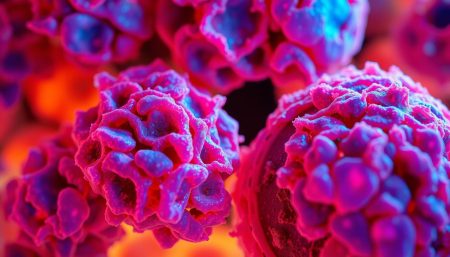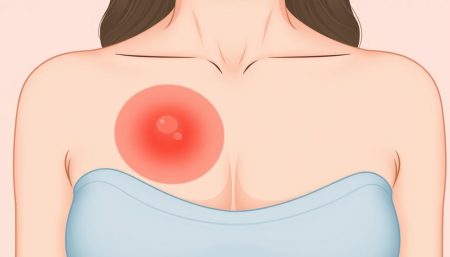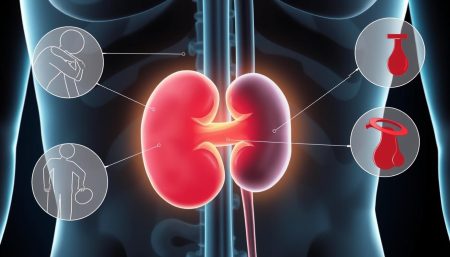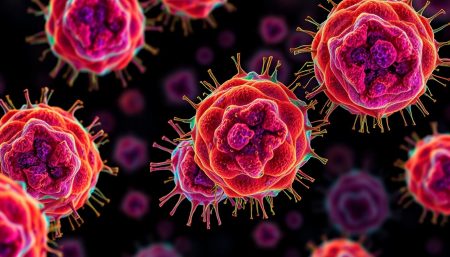Starting CAR T cell therapy is a big step in fighting cancer. It’s important to know what recovery is like and how long it takes. The recovery time is key, with lots of monitoring, getting your immune system back, and care after treatment.
Your medical team will keep a close eye on you during recovery. They’ll look for signs you’re getting better and any side effects. Every person’s recovery is different, but knowing what to expect can help you get ready.
We’ll explore the CAR T cell therapy recovery process in detail. You’ll learn how to manage side effects and take care of your emotional health. We aim to give you the tools to recover well and face this journey with strength and hope.
Understanding the Recovery Process
The recovery after CAR T cell therapy is different for everyone. Each person’s path is unique. The recovery stages and timeline depend on many things. These include the patient’s age, health, and how well they respond to the treatment.
- The type and severity of the cancer being treated
- The patient’s age and overall health status
- The presence of comorbidities or pre-existing conditions
- The patient’s response to the CAR T cell therapy
- The occurrence and severity of side effects
Healthcare providers make care plans for each patient. These plans are based on the patient’s specific needs. They outline the expected recovery stages and help manage side effects and progress.
| Recovery Stage | Approximate Timeline | Key Milestones |
|---|---|---|
| Acute Phase | 1-2 weeks | Monitoring for side effects, managing symptoms |
| Subacute Phase | 2-8 weeks | Gradual improvement in symptoms, immune system recovery |
| Long-term Phase | 2+ months | Ongoing monitoring, return to daily activities |
“The recovery journey after CAR T cell therapy is a testament to the resilience and strength of each patient. With personalized care and support, patients can navigate the challenges and celebrate the milestones along the way.”
Understanding the recovery timeline and the need for individualized care helps. Patients and their families can prepare better for the journey. They can work closely with their healthcare team for the best outcomes.
Initial Days After Treatment
The first days after CAR T cell therapy are key for recovery. Doctors watch the patient’s vital signs and handle side effects closely. This care makes sure the recovery goes smoothly and keeps complications low.
Monitoring Vital Signs
Right after treatment, doctors watch the patient’s vital signs. They check:
- Temperature
- Blood pressure
- Heart rate
- Respiratory rate
- Oxygen saturation levels
They watch for any changes in the patient’s condition. This careful watching is vital for a safe recovery during the hospital stay.
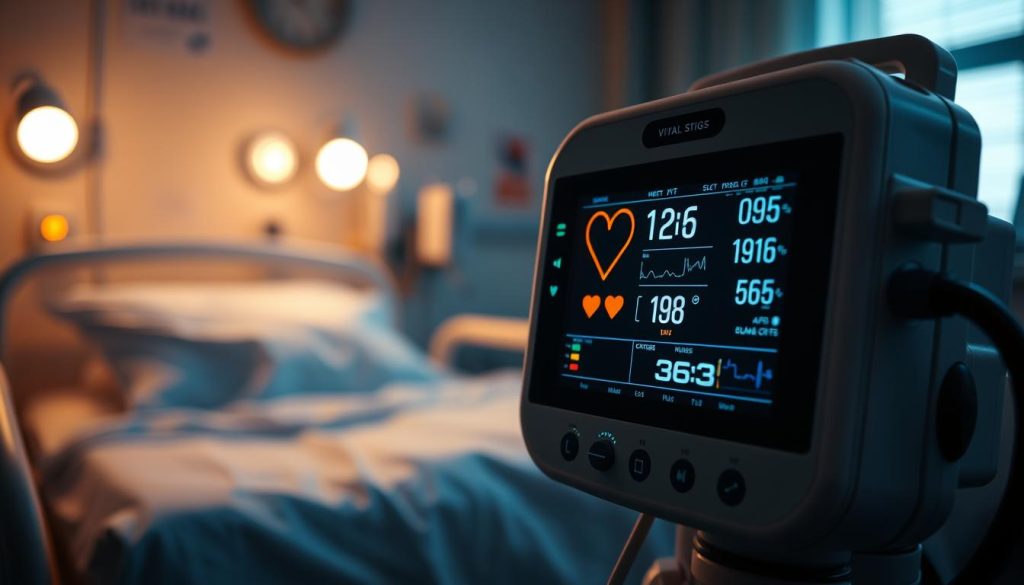
Managing Side Effects
Side effects management is a big part of care after treatment. In the first days, patients might feel:
| Side Effect | Management Strategies |
|---|---|
| Fever | Medications, cooling measures |
| Fatigue | Rest, energy conservation techniques |
| Nausea | Anti-nausea medications, dietary modifications |
| Pain | Pain medications, non-pharmacological techniques |
The healthcare team works hard to reduce these side effects. They use medicines, supportive care, and teach patients to manage side effects. This helps patients feel better and recover faster during the hospital stay.
“The attentive care and support provided by the medical staff in those first few days were invaluable. They made sure I was comfortable and well-informed every step of the way.”
– Sarah, CAR T cell therapy recipient
Hospital Stay Duration
After CAR T cell therapy, patients usually need to stay in the hospital. This is to watch over their recovery and handle any side effects. The time they stay can change based on different things. Knowing these can help patients and their families get ready.
Factors Influencing Length of Stay
Several important factors can affect how long a patient stays in the hospital after CAR T cell therapy:
- Severity of side effects: Patients with more serious side effects, like cytokine release syndrome (CRS) or neurotoxicity, might need to stay longer. This is for careful watching and managing.
- Overall health status: A patient’s health, including age, any existing health issues, and how fit they are, can also affect their recovery time and how long they stay in the hospital.
- Response to treatment: How well the CAR T cell therapy works against cancer cells can also change the hospital stay length. Better results might mean a shorter stay.
Even though the exact time a patient stays in the hospital can vary, there’s a general range:
| Severity of Side Effects | Expected Hospital Stay Duration |
|---|---|
| Mild to moderate | 1-2 weeks |
| Severe | 2-4 weeks or longer |
It’s very important for patients and their caregivers to talk about how long they might stay in the hospital with their doctors. Doctors can give more specific estimates based on the patient’s situation. Planning for different possible hospital stay times can make the recovery smoother and less stressful for everyone involved.
Immune System Recovery
After CAR T cell therapy, patients face a time when their immune system is down. This makes them more likely to get sick. It’s key to watch how the immune system comes back to normal.
How long it takes for the immune system to recover varies. It can be weeks or months. Several things can affect how fast someone recovers, like:
- The patient’s age and overall health
- The type and severity of the cancer
- The specific CAR T cell therapy received
- The presence of any complications or side effects
Healthcare providers keep a close eye on patients for signs of infection. This includes fever, chills, or trouble breathing. To lower the risk of getting sick, patients might get antibiotics or antiviral meds.
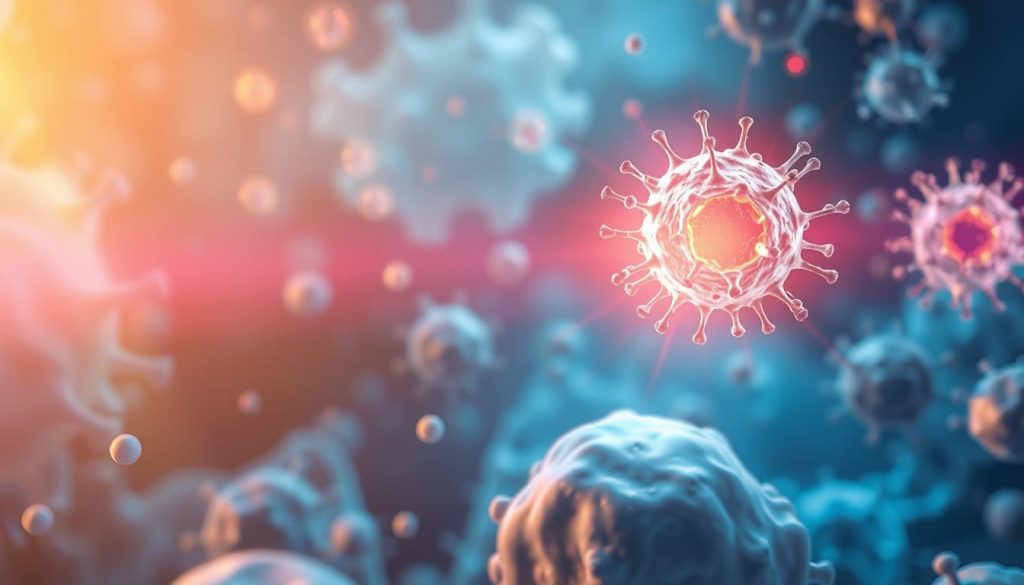
Vaccines are also important during this time. CAR T cell therapy can make it harder for the body to fight off old vaccines. So, patients might need booster shots or revaccination for diseases like:
| Vaccine | Timing After CAR T Cell Therapy |
|---|---|
| Influenza | 3-6 months |
| Pneumococcal | 6-12 months |
| Tetanus, diphtheria, pertussis (Tdap) | 6-12 months |
| Hepatitis B | 6-12 months |
When to give vaccines depends on the patient’s situation and what their healthcare team suggests. By watching the immune system’s recovery and taking steps to prevent sickness, patients can lower their risk of getting infections. This helps them recover well after CAR T cell therapy.
Side Effects Management
CAR T cell therapy is a breakthrough for some blood cancers. But, it can cause side effects that need careful handling. The most common issues are cytokine release syndrome and neurological toxicities. It’s important for patients to know about these risks and the support available.
Common Side Effects
Cytokine release syndrome (CRS) is a common side effect. It happens when the immune system overreacts, releasing many inflammatory molecules. Symptoms can be mild, like fever and flu, or severe, like low blood pressure and organ problems.
Neurological toxicities can cause confusion, speech issues, tremors, or seizures. These symptoms often show up in the first few weeks after treatment. They need close watching and quick action.
Medications and Supportive Care
To tackle CRS and neurological toxicities, doctors use a mix of medicines and supportive care. Here’s a table showing some of the treatments:
| Side Effect | Medications | Supportive Care |
|---|---|---|
| Cytokine Release Syndrome |
|
|
| Neurological Toxicities |
|
|
The medical team keeps a close eye on patients for these side effects. Tocilizumab, an antibody that blocks the IL-6 receptor, has proven effective in managing severe cases of CRS. Corticosteroids are also used to reduce the immune response and ease symptoms.
“Managing side effects is a critical aspect of CAR T cell therapy. With proper monitoring and supportive care, most patients can successfully navigate through this phase of recovery.”
Post-Treatment Care
After CAR T-cell therapy, patients need to focus on post-treatment care. This ensures a smooth recovery and reduces the risk of complications. Regular follow-up appointments and self-care practices are key. Follow-up care helps monitor progress and address any concerns.
Follow-up Appointments
Patients must keep up with regular appointments with their oncologist and medical team. These visits include:
- Physical examinations
- Blood tests to check cell counts and organ function
- Imaging studies to see how the treatment is working and if there’s any recurrence
- Talks about managing side effects
| Follow-up Timeline | Frequency of Appointments |
|---|---|
| First 3 months post-treatment | Every 1-2 weeks |
| 3-6 months post-treatment | Every 1-2 months |
| 6-12 months post-treatment | Every 2-3 months |
| Beyond 1 year post-treatment | Every 3-6 months |
Infection Prevention
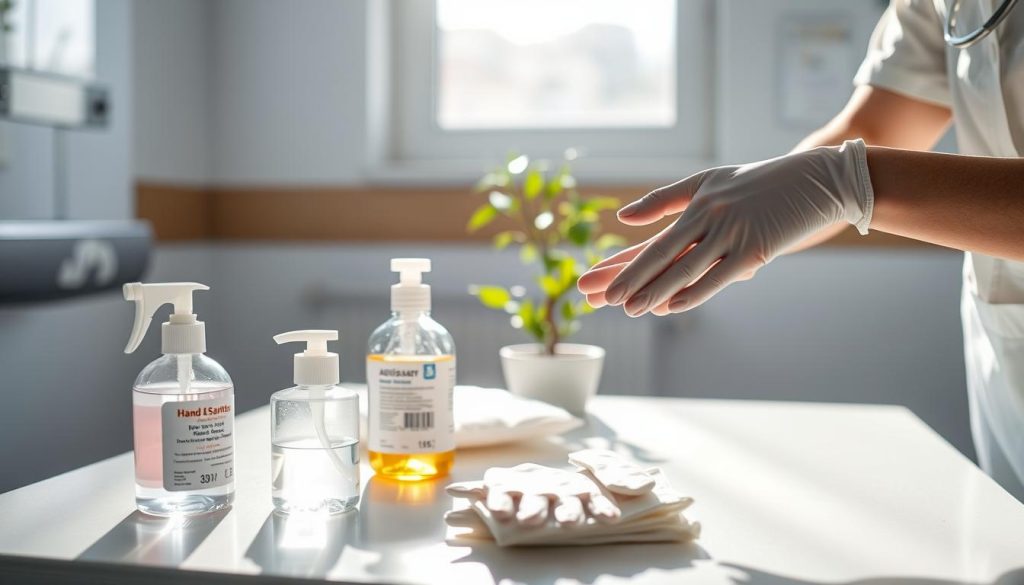
CAR T-cell therapy weakens the immune system, making patients more prone to infections. To prevent infections, patients should:
- Maintain good hand hygiene
- Avoid crowded places and individuals who are sick
- Wear a mask when in public spaces
- Ensure proper food safety practices
- Stay up-to-date with vaccinations as recommended by the medical team
Self-care practices, such as getting enough rest, managing stress, and maintaining a balanced diet, play a vital role in supporting the body’s natural healing processes and promoting overall well-being during the recovery phase.
By following a detailed post-treatment care plan, patients can improve their recovery and chances of success after CAR T-cell therapy.
Rehabilitation Process
After CAR T cell therapy, patients need a strong rehab program. This includes physical therapy and occupational therapy. These help patients get back to their daily lives and improve their quality of life.
Physical therapy is key in rehab. It focuses on strength building, endurance, and improving movement. Physical therapists create special exercise plans for each patient. These plans help patients get stronger and move better.
- Resistance training using weights or resistance bands
- Stretching exercises to improve flexibility
- Balance and coordination drills
- Cardiovascular exercises to enhance endurance
Occupational therapy is also vital. It helps patients do daily tasks on their own again. Occupational therapists find ways to make tasks easier and teach energy-saving tips.
The rehab journey includes setting goals and tracking progress. Therapists and patients work together to reach these goals. This way, they can celebrate each success and make the plan better if needed.
“The road to recovery after CAR T cell therapy can be challenging, but with the support of a dedicated rehabilitation team, patients can make significant strides in regaining their strength and independence.” – Dr. Sarah Thompson, Rehabilitation Specialist
The rehab time and effort vary for everyone. It depends on age, health, and treatment side effects. But, with physical therapy and occupational therapy, a positive attitude, and support, patients can recover well.
Learning about the challenges of CAR T cell therapy helps prepare for rehab.
| Rehabilitation Component | Goals |
|---|---|
| Physical Therapy | Improve strength, endurance, flexibility, and range of motion |
| Occupational Therapy | Enhance independence in daily activities and work-related tasks |
| Goal Setting | Establish realistic milestones and track progress over time |
By being active in rehab and working with a supportive team, patients can improve their life after CAR T cell therapy.
Nutritional Support
Getting the right nutritional support is key for patients going through CAR T cell therapy. It helps them recover and boosts their immune system. A diet full of important nutrients aids in healing and dealing with treatment’s challenges.

Patients might find their appetite, taste, and digestion changing during recovery. It’s important to team up with a registered dietitian. They can offer tailored advice on nutrition and any dietary restrictions needed.
Importance of a Balanced Diet
A balanced diet is essential for CAR T cell therapy patients. It gives them the nutrients needed for healing and recovery. A healthy diet includes:
- Lean proteins for tissue repair and immune function
- Fruits and vegetables for vitamins, minerals, and antioxidants
- Whole grains for energy and fiber
- Healthy fats for cell integrity and less inflammation
“Eating a balanced diet is one of the most important things patients can do to support their recovery after CAR T cell therapy. It gives the body the building blocks it needs to heal and regain strength.”
Dietary Restrictions and Recommendations
To lower the risk of infection, patients might have to stick to certain dietary restrictions during recovery. They should avoid raw or undercooked foods, unpasteurized dairy, and high-risk foods like deli meats and soft cheeses.
It’s also important to drink lots of water and other clear fluids. Sometimes, nutritional support comes from supplements or enteral feeding to make sure they get enough nutrients.
By focusing on good nutrition and following specific dietary plans, patients can better their recovery and overall health after CAR T cell therapy.
Emotional Well-being
Recovering from CAR T-cell therapy can be tough on the mind. Patients might feel anxious, depressed, or worried about cancer coming back. It’s key to focus on emotional health and seek help when needed.
Talking to others who’ve been through it can really help. Support groups offer a place to share feelings and experiences. Hearing from others who get it can be very uplifting.
Also, seeing a therapist can be a big help. They can help you find ways to cope and deal with any emotional pain from treatment.
Coping with Emotional Challenges
Patients might face many emotional hurdles, like:
- Worrying about the future and cancer coming back
- Feeling sad or hopeless
- Adjusting to physical changes
- Strains in relationships
To tackle these, try:
- Using relaxation techniques like deep breathing
- Doing things that bring joy
- Writing or creating to express feelings
- Talking openly with loved ones
Support Groups and Counseling
Many places offer support groups for CAR T-cell therapy survivors. These groups meet in person or online, helping patients connect. Some programs pair patients with volunteers who’ve gone through similar things.
For one-on-one help, look for a therapist who knows about cancer. Oncology experts can offer specific support. Many insurance plans cover mental health services, and there might be financial help too.
“Seeking support for my emotional well-being was one of the best decisions I made during my CAR T-cell therapy recovery. Connecting with others who understood my experience helped me feel less alone and more empowered to face the challenges ahead.” – CAR T-cell therapy survivor
Remember, taking care of your emotional health is a big part of getting better. Don’t be afraid to ask for help and use the resources out there. With time and the right support, you can overcome the emotional hurdles of CAR T-cell therapy recovery and find hope again.
Caregiver Assistance
After CAR T cell therapy, the caregiver’s role is key. They provide support and care to the patient. Caregivers help their loved ones face recovery challenges, offer emotional support, and help with daily tasks.
It’s vital for caregivers and patients to talk openly. Caregivers should listen to their loved one’s concerns and fears. They should work together to find solutions. Being patient, understanding, and flexible is important as the patient adjusts.
Building a strong support network is also important. This network can include family, friends, healthcare professionals, and support groups. Caregivers should ask for help when needed. Taking care of themselves is key to avoid burnout.
Some ways caregivers can support patients include:
- Helping with medication and monitoring side effects
- Assisting with daily activities like meal prep and light housekeeping
- Going to follow-up appointments and talking to the healthcare team
- Providing emotional support and encouragement
Remember, caregiving is a team effort. Working together with the patient, healthcare team, and support network can make recovery smoother.
Long-term Monitoring
After CAR T cell therapy, patients start a vital phase of care. They work closely with their doctors to ensure a good life quality. Regular check-ups and watching for late effects are key parts of this care.
Regular Check-ups
Patients need to see their doctors often after CAR T cell therapy. These visits include:
- Physical exams
- Blood tests to check cell counts and immune function
- Imaging studies, like CT scans or PET scans, to see how treatment is working and if cancer has come back
How often these visits happen can change based on the patient’s needs and how long it’s been after treatment. But, a common schedule might be:
| Time After Treatment | Check-up Frequency |
|---|---|
| First 3 months | Every 2-4 weeks |
| 3-12 months | Every 1-3 months |
| 1-2 years | Every 3-6 months |
| 2+ years | Every 6-12 months |
Late Effects Surveillance
Even though CAR T cell therapy is very effective, it’s important to watch for late effects. These can happen months or years later and can affect different parts of the body. Some late effects include:
- Endocrine disorders, like thyroid problems or growth hormone issues
- Heart problems, such as heart failure or irregular heartbeats
- Neurological issues, like brain problems or nerve damage
- New cancers, or second malignancies
To find and handle these late effects, patients will get special tests as part of their care plan. This might include:
- Hormone tests
- Heart tests, like echocardiograms or ECGs
- Brain and nerve tests
- Cancer screenings
The goal of long-term monitoring and survivorship care is to find and deal with health issues early. This ensures CAR T cell therapy survivors have the best life quality.
By working with their medical team and following their care plan, patients can manage their health well. This way, they can enjoy life after treatment.
Returning to Daily Activities
After CAR T cell therapy, patients start to feel better and regain their strength. They look forward to doing their usual daily tasks again. But, they need to do it slowly and carefully to keep recovering well.
Gradual Reintegration
Going back to work or school after CAR T cell therapy takes time and planning. Patients should talk to their doctors to make a plan that fits their needs. Important things to think about include:
- Starting with part-time or flexible schedules to avoid overexertion
- Prioritizing essential tasks and delegating or postponing non-critical responsibilities
- Communicating openly with employers, teachers, or colleagues about limitations and necessary accommodations
- Gradually increasing activity levels as strength and stamina improve

Adjusting to a New Normal
CAR T cell therapy can change a person’s life. They might see things differently and have new priorities. To adjust, they can:
| Strategy | Description |
|---|---|
| Setting realistic expectations | Understanding that recovery is a journey and progress may be gradual |
| Focusing on self-care | Prioritizing physical, emotional, and mental well-being |
| Seeking support | Connecting with loved ones, support groups, or counseling services |
| Celebrating milestones | Acknowledging and appreciating achievements, no matter how small |
As Dr. Sarah Thompson, a renowned oncologist, says:
“Returning to daily activities after CAR T cell therapy is a significant milestone, but it’s important to approach it with patience and self-compassion. Celebrate your progress, lean on your support system, and remember that your ‘new normal’ is a testament to your strength and resilience.”
By slowly getting back into daily life and accepting their new reality, CAR T cell therapy patients can successfully recover. They can find joy and purpose in their daily activities again.
Patient Success Stories
The journey to recovery after CAR T cell therapy is unique for each person. Many have found new hope and a second chance at life with this treatment. These stories show the strength and determination of those who have gone through CAR T cell therapy.
Sarah, a young woman, was diagnosed with advanced lymphoma. She tried many treatments before CAR T cell therapy. Despite the tough recovery, including managing side effects and a long hospital stay, Sarah is now cancer-free. Her story shows the impact of this treatment and the courage of those who try it.
Michael, a father of two, fought relapsed leukemia. CAR T cell therapy gave him a chance to see his children grow up. With his family’s support, Michael made it through the recovery. Today, he’s grateful for a second chance and enjoys every moment with his family.
These stories are just a few examples of the many success stories with CAR T cell therapy. Each patient’s journey is different, but the hope for a better future is common. As more people share their experiences, they inspire others to keep fighting and believe in this revolutionary treatment.
FAQ
Q: How long does it typically take to recover from CAR T cell therapy?
A: Recovery time varies. It depends on your age, health, and how well you respond to treatment. Most patients stay in the hospital for weeks after treatment. After leaving, recovery can take months. Your doctors will keep a close eye on you and give you a personal recovery plan.
Q: What can I expect during the initial days after CAR T cell therapy?
A: Right after treatment, you’ll be watched closely for any side effects. Your healthcare team will give you medicine to help with symptoms. It’s important to tell them if you notice any changes in your health.
Q: How long will I need to stay in the hospital after receiving CAR T cells?
A: How long you stay in the hospital varies. It depends on how you react to the treatment and any side effects. Usually, patients stay for 2-3 weeks. Your doctors will decide when it’s time for you to go home.
Q: How long does it take for the immune system to recover after CAR T cell therapy?
A: It takes months for your immune system to get back to normal. You might get sick easier during this time. Make sure to follow precautions and see your doctors regularly. They will check your immune system and tell you when it’s safe to get vaccinated.
Q: What side effects can I expect during the recovery process, and how are they managed?
A: You might feel fever, chills, and low blood pressure due to cytokine release syndrome (CRS). You could also have neurological problems like confusion or seizures. Your doctors will use medicine to treat CRS and help with other symptoms. It’s important to talk to them about any side effects you have.
Q: What does post-treatment care involve after CAR T cell therapy?
A: Post-treatment care is key to your recovery. You’ll need to see your doctors regularly and follow precautions to avoid infections. Eating well, staying active, and taking care of yourself are also important.
Q: Will I need rehabilitation after CAR T cell therapy?
A: You might need rehabilitation to get stronger and more independent. This could include physical therapy to improve your endurance and flexibility, and occupational therapy to help with daily tasks. Your doctors will decide if you need rehabilitation and create a plan for you.
Q: How can I cope with the emotional challenges during recovery?
A: Dealing with emotions like anxiety, depression, or fear of recurrence is normal. It’s important to talk to your loved ones and doctors about how you’re feeling. Seeking support from counseling, support groups, or other resources can help you cope with these emotions.
Q: What role do caregivers play in the recovery process?
A: Caregivers are very important in your recovery. They can help with things like managing your medicine, taking you to appointments, and cooking meals. It’s important for caregivers, patients, and doctors to communicate well to ensure a supportive recovery.
Q: How long will I need to be monitored after CAR T cell therapy?
A: You’ll need to be checked regularly after treatment. These check-ups help your doctors monitor your health and catch any late effects. Even though these visits might become less frequent, it’s important to stay in touch with your healthcare team for life.












